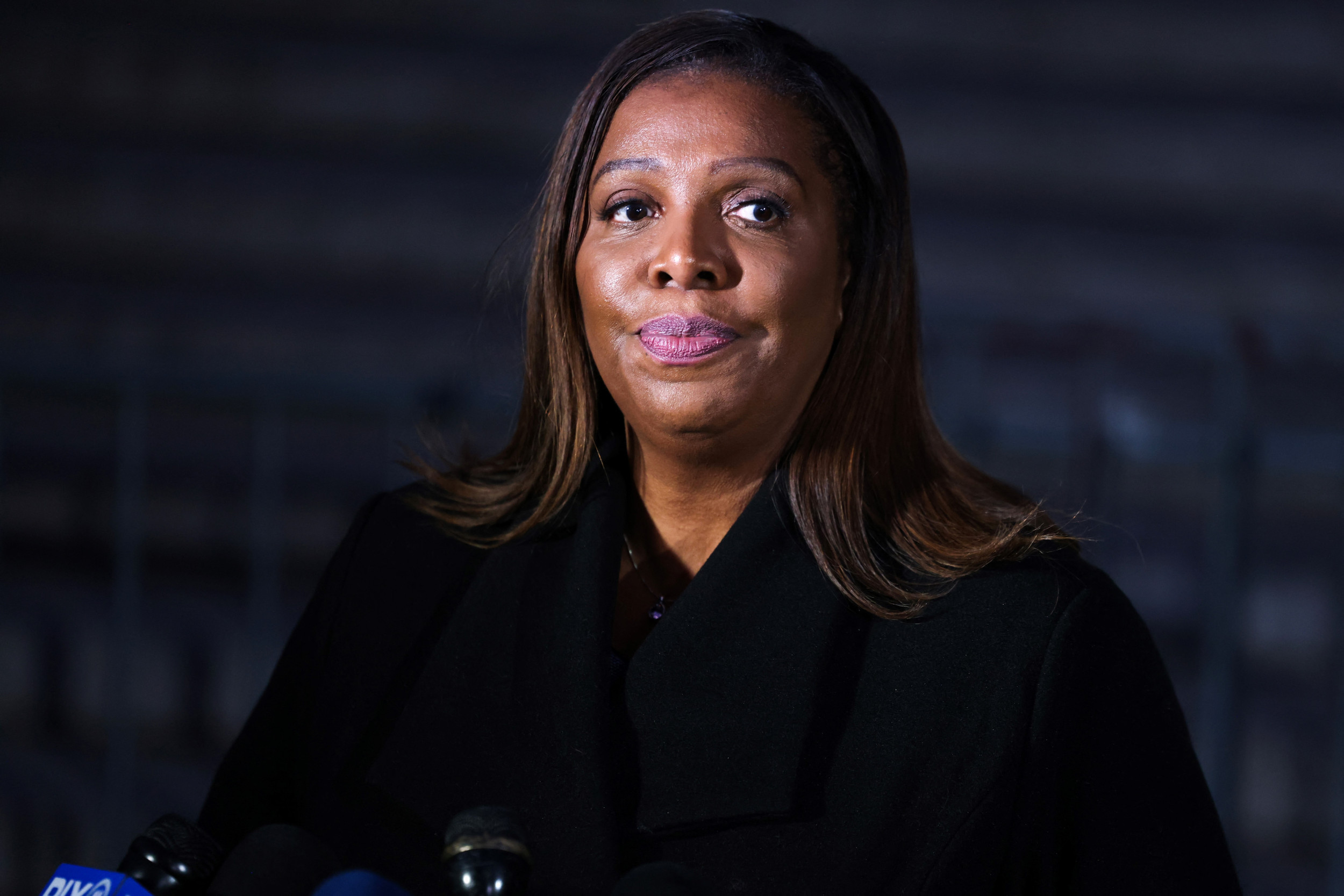A diplomatic row is brewing between Israel and the U.S. over Israel Defense Forces (IDF) plans to push into the southern Gaza Strip city of Rafah, which after four months of devastating warfare has become the "last refuge" for almost 2 million displaced Palestinians.
Israeli Prime Minister Benjamin Netanyahu said this past weekend that Israel's campaign in Gaza has put victory "in reach," although his stated goal of "eradicating" the Hamas militant group still appears some way off.
As IDF units fight in the southern Hamas stronghold of Khan Younis, Israeli planners are preparing to push all the way south to Rafah, which sits along the Gaza-Egypt frontier.
"We're going to do it," Netanyahu said. "We're going to get the remaining Hamas terrorist battalions in Rafah, which is the last bastion."
The threats have prompted protests from the White House, with President Joe Biden warning there should be no Rafah offensive "without a credible and executable plan for ensuring the safety of and support for the more than 1 million people sheltering there."
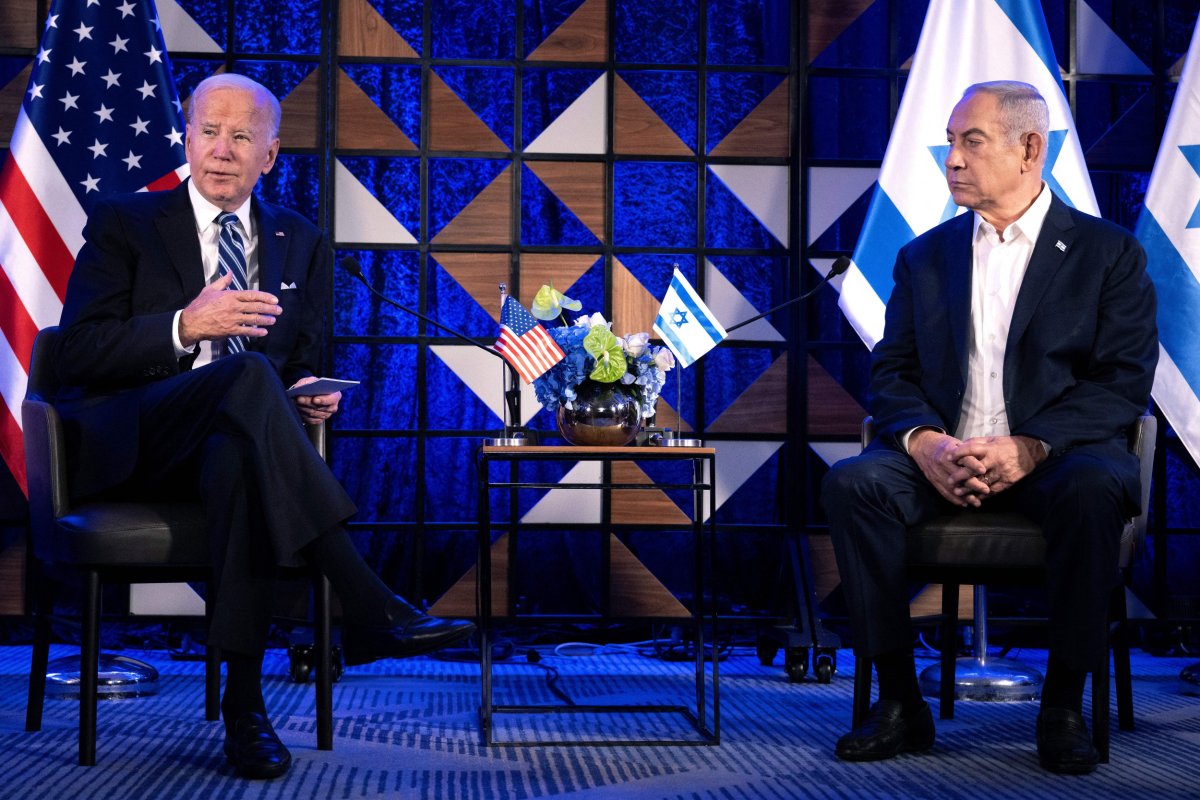
Netanyahu, who has never been a firm friend of Biden's over a relationship spanning decades—has repeatedly shown a willingness to defy Israel's prime benefactor. The battle of Rafah could prove his biggest statement yet.
"Netanyahu and the Israeli government have demonstrated repeatedly that they will take whatever actions they believe will best serve Israel's security, regardless of what their allies or regional partners advocate," professor Adria Lawrence of Johns Hopkins University told Newsweek.
"The United States simply does not have the ability to deter the Israeli government that some of Biden's critics believe he has," Lawrence said.
Any operation against Rafah—and into the Philadelphi Corridor, the name used to refer to the strip of land running along the Gaza-Egypt border—will doubtless prove costly.
More than 28,000 Palestinians have been killed and 80 percent of Gaza's population displaced by the Israeli military campaign, according to the Associated Press.
On the IDF's side, 232 troops have so far been killed in fighting in the Strip, according to The Times of Israel, an online newspaper. Israeli's offensive operation was launched after Hamas' surprise October 7 attack on the country's south, which killed some 1,200 people. About 250 were taken to Gaza as hostages, and some 100 captives remain unaccounted for. Two hostages were rescued this week in an operation in Rafah.
Gaza's Battered Refuge City
Before the war, Rafah was home to just 300,000 people. An assault on the southern frontier city would endanger the 1.5 million Palestinian civilians who have flooded there to escape Israeli bombardment elsewhere in the Strip. Israeli airstrikes have repeatedly struck Rafah, though the settlement has so far been spared the devastation inflicted elsewhere.
Physicians from the nongovernmental organization MedGlobal, who recently spent time volunteering at Rafah and Khan Younis medical facilities, told Newsweek earlier this month that those taking shelter in Rafah "are terrified as to what's going to happen."
Already, some 65 percent of Gaza's population is crammed into the city, which was designated a "safe zone" by the Israeli government despite repeated airstrikes.
Sarah Parkinson, also a professor at Johns Hopkins, told Newsweek the city's infrastructure is collapsing under the weight of the war.
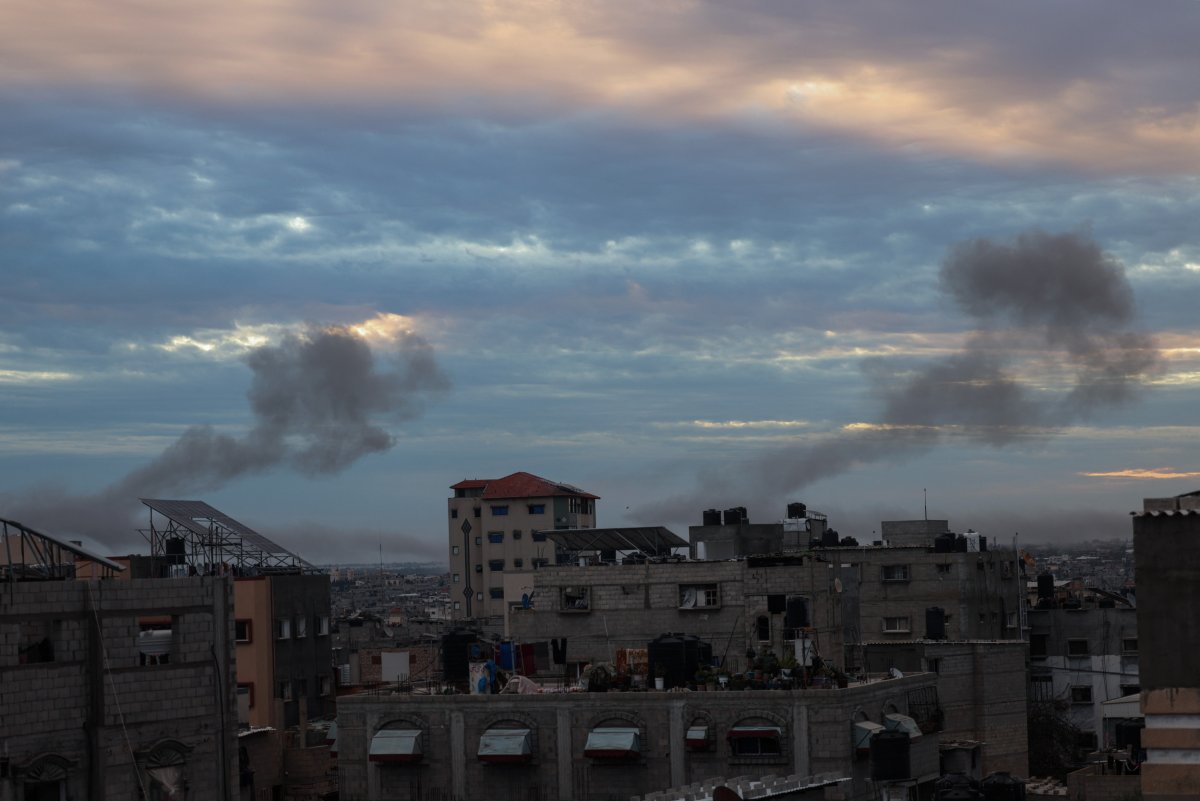
"Many Gazans in Rafah are basically starving. People have resorted to eating grass or animal feed," Parkinson said. "Clean drinking water is almost impossible to find. Tens of thousands of families are living in tents. By U.N. estimates, about 80,000 families—400,000 people—lack appropriate shelter. There is thus zero protection from Israeli shelling or crossfire."
She continued: "The few functioning hospitals are overwhelmed. On top of the large numbers of trauma cases, they are also treating thousands of cases of infectious disease. UNICEF has said that cases of diarrhea among children are up 4,000 percent since the war began.
"IDF ground operations and the shelling that accompanies them will make searching for already scarce food and water—or attempting to access medical care at the few remaining, partially functional hospitals—lethally dangerous," Parkinson said. "There is no way to ensure civilians' safety under these conditions. There has been no safe place in Gaza for months."
Biden's Netanyahu Problem
Previous—or ongoing—IDF drives into urban centers like Gaza City and Khan Younis have been slow and bloody. Rafah may prove similar, with the added complication of millions of Palestinians with nowhere to flee.
David Tsur, the former commander of Israel's Yamam counterterrorism unit and a former member of the Israeli parliament, told Newsweek during a Jerusalem Press Club briefing on Monday that any action in Rafah will be "complex" because it is "a very hostile" urban area.
Israeli units, he said, will take any chance to rescue hostages hidden in the southern city. He added that the danger to Rafah is due to the "cynical" negotiating tactics of Hamas, which has proposed a sequenced release of captives over several months in exchange for a full Israeli withdrawal from Gaza.
A large attack in Gaza may prompt more complaints from the White House, which has been urging Israel to transition to a more targeted, less bloody mode of warfare.
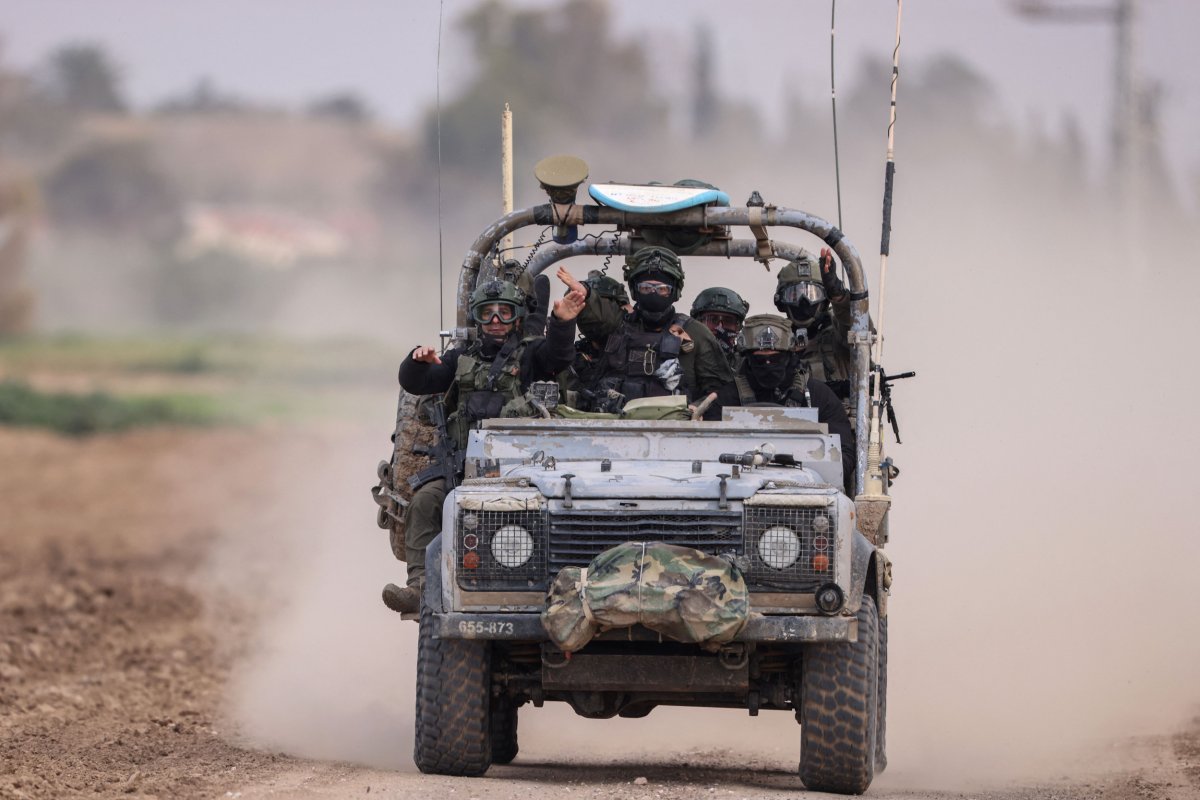
"Israel has an obligation to make sure that they can protect them," National Security Council spokesperson John Kirby said this week, speaking about Palestinians in Rafah. Biden, he added, is "confident that our Israeli counterparts understand our concerns. We've made them privately. We've made them publicly."
In any case, Kirby said, "we're going to continue to support Israel. They have a right and responsibility to go after Hamas. We're going to make sure that they can continue to do that."
Biden, Lawrence said, "certainly faces political constraints when it comes to criticizing or putting pressure on Israel, but what many of his critics on this issue fail to appreciate is that even if he did forcefully push Netanyahu to prioritize the welfare of Palestinian civilians, Biden has very little leverage over Israel."
She continued: "Israel has the capacity to act with or without external support or military aid—it is not dependent on the U.S. military aid or support—and so there are serious limits on what any outside actor can achieve."
Newsweek has contacted Netanyahu's office by email to request comment.
The frustration among traditional Israeli allies is clear. Josep Borrell, the European Union's foreign policy chief, said this week that Netanyahu "doesn't listen."
As for the prime minister's suggestion of a fresh evacuation of Palestinians from Rafah, Borrell quipped: "Where? To the moon?"
Regional Tensions Continue
An IDF assault on Rafah may complicate matters on the regional front. Israel's local partners—with whom Netanyahu and his colleagues have spent decades trying to repair relations and expand security, economic and political ties—are making clear their discomfort.
Saudi Arabia, with whom Israeli was negotiating a historic normalization deal until October 7 and the subsequent Gaza campaign, warned of "very serious repercussions" if Rafah is attacked.
Jordanian King Abdullah said that an Israeli assault is "certain to produce another humanitarian catastrophe," repeating his call for an immediate ceasefire.
Egypt, arguably Israel's most important security partner in the Middle East, appears perturbed by the looming offensive. The 1978 peace deal between the two nations set a new precedent for future Israeli-Arab cooperation. In addition, Cairo has long cooperated in blockading the Gaza Strip in an effort to choke Hamas.
President Abdel Fattah el-Sisi has maintained the close cross-border ties, and in 2016 he was described by The Economist as "the most pro-Israeli Egyptian leader ever."
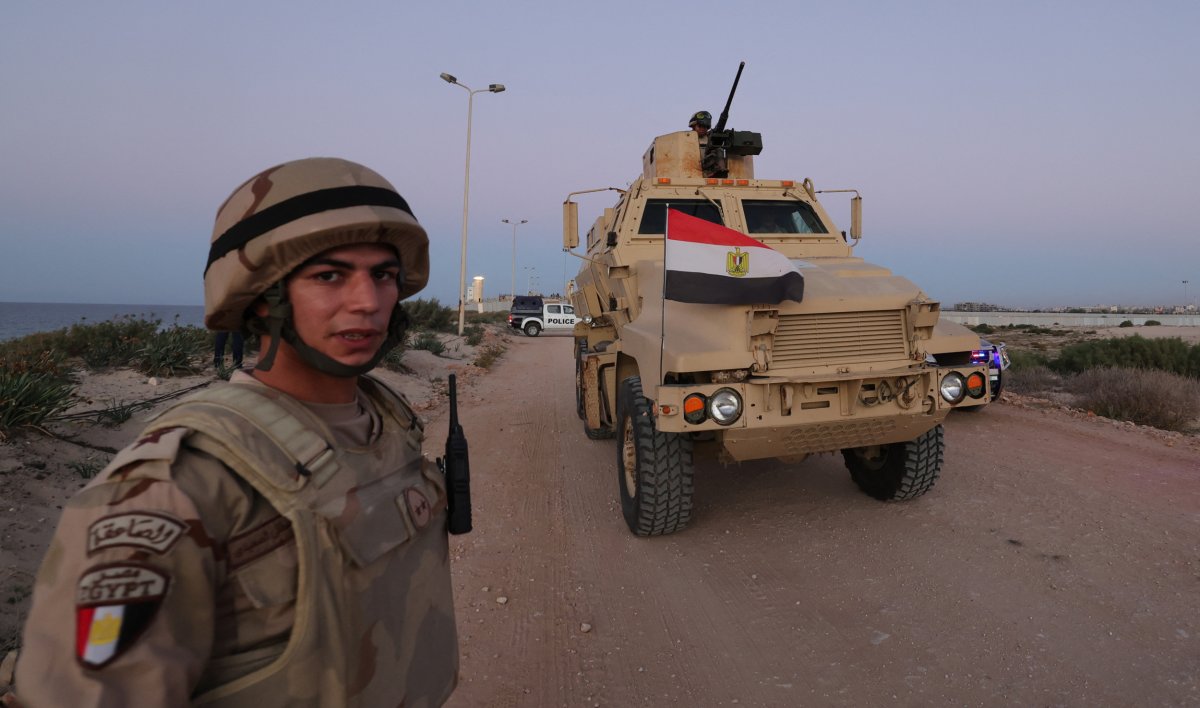
The peace deal is not at risk, according to Egyptian Foreign Minister Sameh Shoukry. "There is a peace agreement between Egypt and Israel, which has been in effect for the past 40 years and will continue to be," he said this week.
Still, officials in Cairo have reportedly warned Israel not to occupy the Philadelphi Corridor, which was demilitarized under the 1978 bilateral peace deal. Any such move, Egypt has said, would constitute a "serious threat" to relations.
"Definitely, we need to be coordinated with the Egyptians," Tsur said, describing the Philadelphi Corridor and the border crossings as "sensitive points." Intelligence, military, and border control authorities "have a good, open channel with the Egyptians," he added. "Unfortunately, the politicians are not talking so much."
Cairo, Lawrence said, "is primarily concerned with avoiding spillover effects from the conflict. Though the Egyptian government is critical of further attacks on Rafah, Israel is unlikely to be deterred by concerns about their relationship to the el-Sisi government."
Lawrence continued: "The only way to alter Israel plans would be to persuade Netanyahu and his cabinet that an attack on Rafah will not make Israel safer. The Israeli government has been focused on freeing the hostages and combating Hamas, but Israel's long-term security depends upon addressing the wider conflict and the status of Palestinians more generally."
She added, "An attack on innocents is not the way to achieve peace and security. Studies of conflict have shown that the use of violence against unarmed citizens fuels rather than eliminates extremism."
Uncommon Knowledge
Newsweek is committed to challenging conventional wisdom and finding connections in the search for common ground.
Newsweek is committed to challenging conventional wisdom and finding connections in the search for common ground.
fairness meter
To Rate This Article
About the writer
David Brennan is Newsweek's Diplomatic Correspondent covering world politics and conflicts from London with a focus on NATO, the European ... Read more
To read how Newsweek uses AI as a newsroom tool, Click here.






